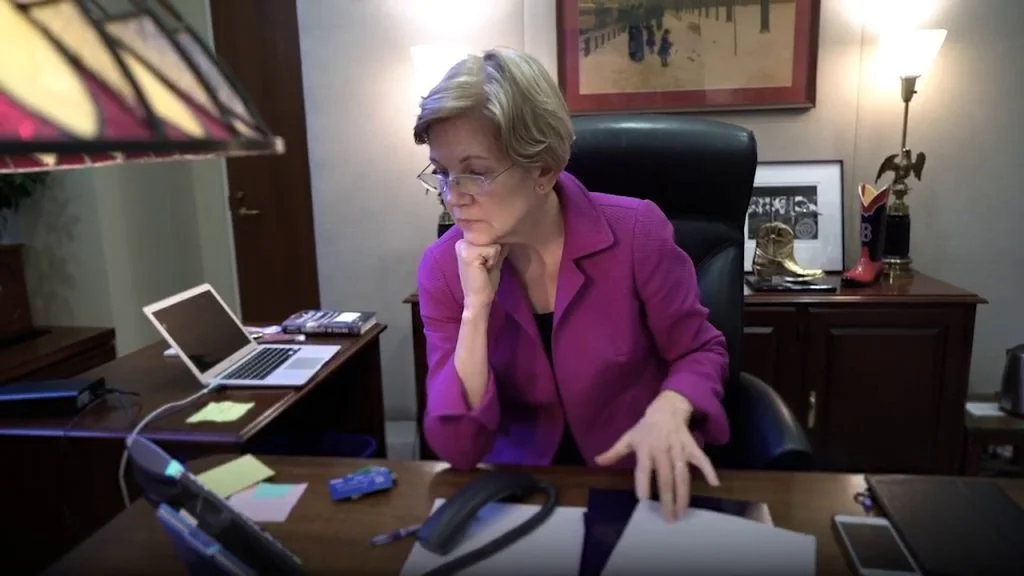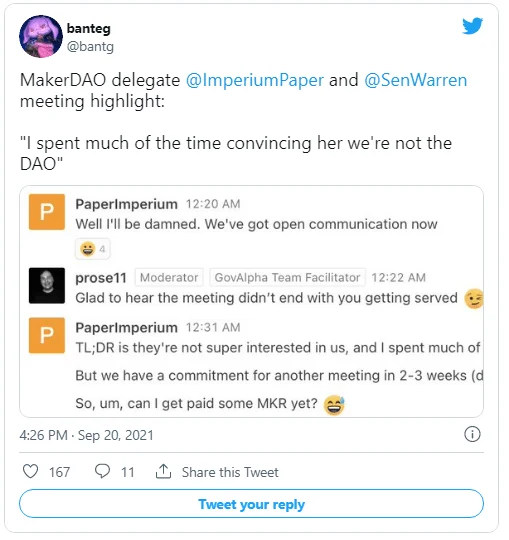Senator Elizabeth Warren’s office in a meeting with MakerDAO developers stated it has allegedly confused DeFi protocol MakerDAO with The DAO a failed experiment in decentralized autonomous organizations in 2016.

On Sept. 20, a screenshot began spreading on social media that appeared to show members of the MakerDAO community discussing the outcomes of a recent meeting between the project’s representatives and Senator Warren’s office.
In the screenshot, the MakerDAO Governance delegate “PaperImperium” claims to have spent a significant amount of time persuading Warren that Maker is not the same project as The DAO, a well-known early experiment in decentralized autonomy organizations (DAOs) that was hacked and eventually failed in 2016.

According to DeFi Llama, MakerDAO is the sixth-largest DeFi protocol, with a total value locked of more than $8.2 billion.
Despite the ambiguity, the delegate concluded that the Senator is “not overly interested in us,” and that they “have a commitment for another meeting” in three weeks.
While the screenshots published on social media appear to explicitly quote Senator Warren, a Sept. 17 posting on MakerDAO’s governance forum states that the project’s delegates will meet with Warren’s “economic and banking advisors.”
The meeting comes as MakerDAO increased its efforts to encourage initiatives that foster discussion between the crypto industry and legislators.
In recent months, Elizabeth Warren has become a pariah in the crypto business, calling it “the next shadow bank” and a “lousy investment.”
She argued earlier this month that preventing U.S. institutions from keeping reserves to support private stablecoins would be “worth consideration,” as it would “essentially stop the booming market.”
The DAO was one of the first significant Ethereum initiatives, launching in 2016 after a token sale raised $150 million USD in ETH. The DAO was hacked owing to coding flaws, and $60 million in ETH was taken just three months after it went live.
It was one of the most heavily funded cryptocurrency projects to date, attracting 14% of all circulating ETH at the time.
As a result of the attack, the Ethereum community chose to hard fork Ethereum to reverse the attack, with dissenting voices opting to keep the old chain, resulting in the Ethereum Classic classic chain.
